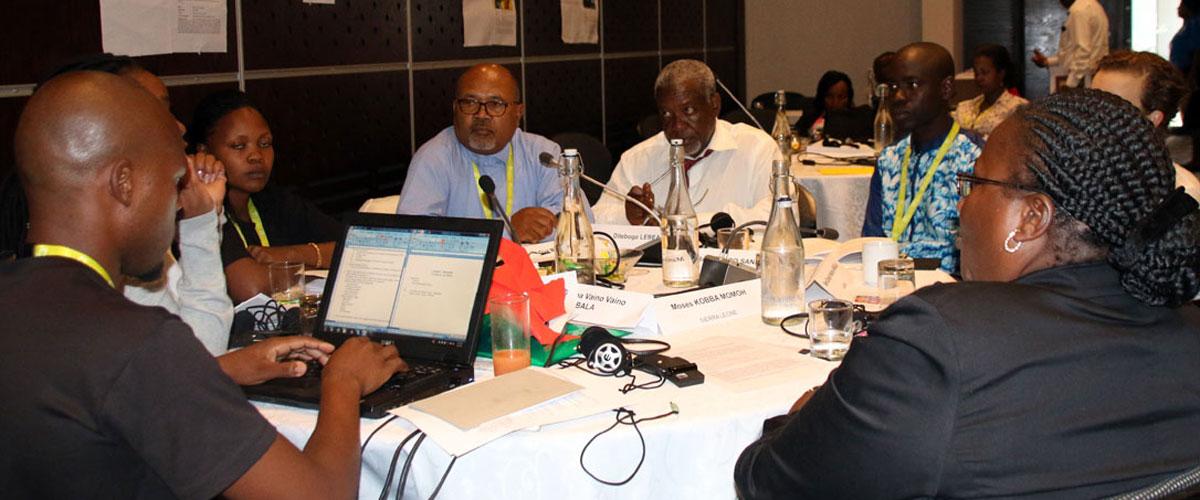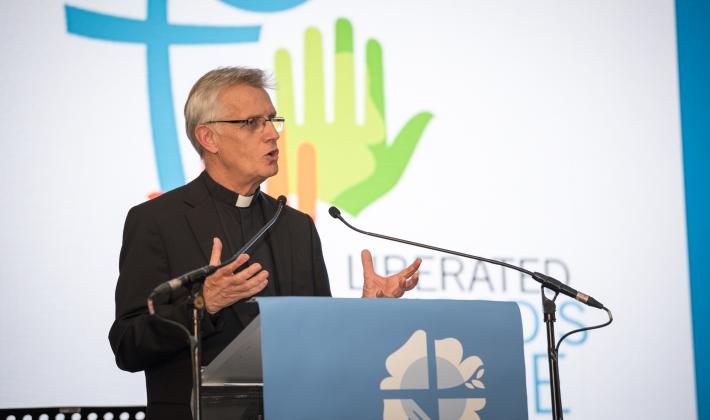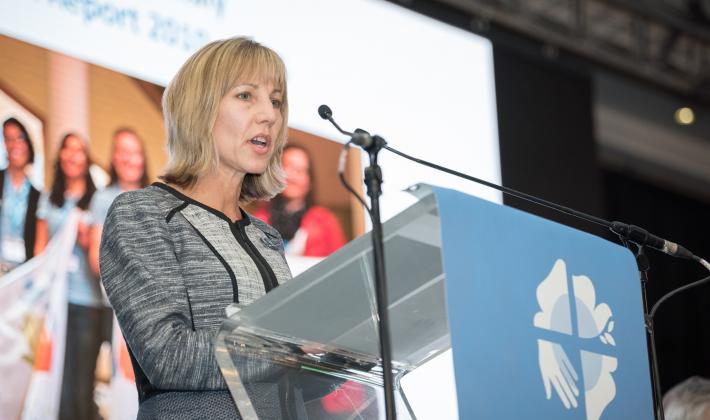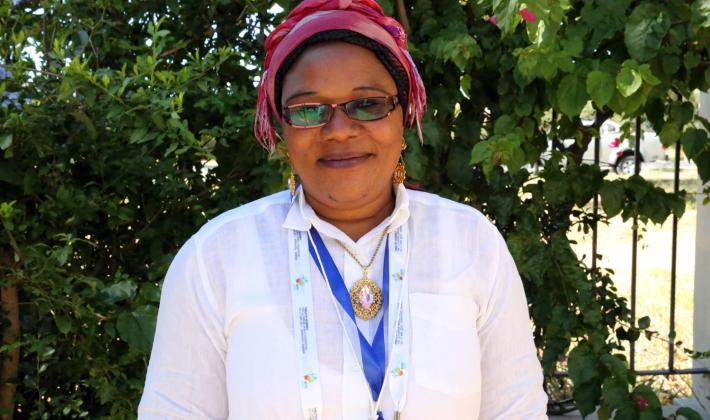
With its commitment to raise awareness of the United Nation’s Sustainable Development Goals (SDGs), the Lutheran World Federation (LWF) has asked members of the Lutheran churches in Africa to speak up and to engage all generations, particularly young people, in implementing the SDGs adopted by the UN in 2015.
During the Africa Pre-Assembly, held in Johannesburg, South Africa, from 6 to 10 February, Dr Rogate Mshana from the Evangelical Lutheran Church in Tanzania and former World Council of Churches program executive for economic justice introduced the SDGs to the pre-assembly participants. He stated that the previous goals, the Millennium Development Goals, (MDGs) which had been adopted by the UN in September 2000, were not fully achieved, as the goals only targeted the developing countries.
Mshana discussed two of the 17 SDGs – zero hunger and quality education. He said hunger dehumanizes people while the only way to divide the wealth in the world is through attaining quality education. Therefore, the two goals are paramount to Africa.
Further discussions at the Africa Pre-Assembly focused on nine selected SDGs that are related to the work of member churches in Africa: ending poverty, zero hunger, good health and wellbeing, clean water and sanitation, gender equality, quality education, climate action, peace, justice and strong institutions and partnership for goals.
Youth are vulnerable but also agents of change
“It is time to change the world because there is no point going halfway,” said LWF Youth Secretary Caroline Bader in her presentation. The SDGs are universal goals and targets, which involve developed and developing countries alike,” she said.
Referring to the Assembly sub-theme “Human beings – not for sale” and the UN slogan “Leave no one behind,” Bader emphasized that there are various vulnerable groups in society. She shared UN research showing that the youth of today will be poorer than their parents.
Bader highlighted the fact that despite various problems facing the youth, they are also actors of change. The LWF Living Reformation Projects have become success stories in LWF member churches, such as Nigeria, the Philippines, Malaysia, Ghana and Argentina.
The SDGs are universal goals and targets, which involve developed and developing countries alike.
She said that LWF is planning a program called “Waking the Giant”, that aims to strengthen churches’ capacity to effectively contribute to the achievement of the Sustainable Development Goals, also known as 2030 Agenda.
Bader pointed out that there are several ways church leaders and members could engage in the SDGs. They could talk to the local or national governments, work with the local media and promote rights-based and accountable efforts by member churches to achieve long-lasting development for all.
By Mphatso Thole, LWF ALCINET, edited by the Office for Communication Services.



